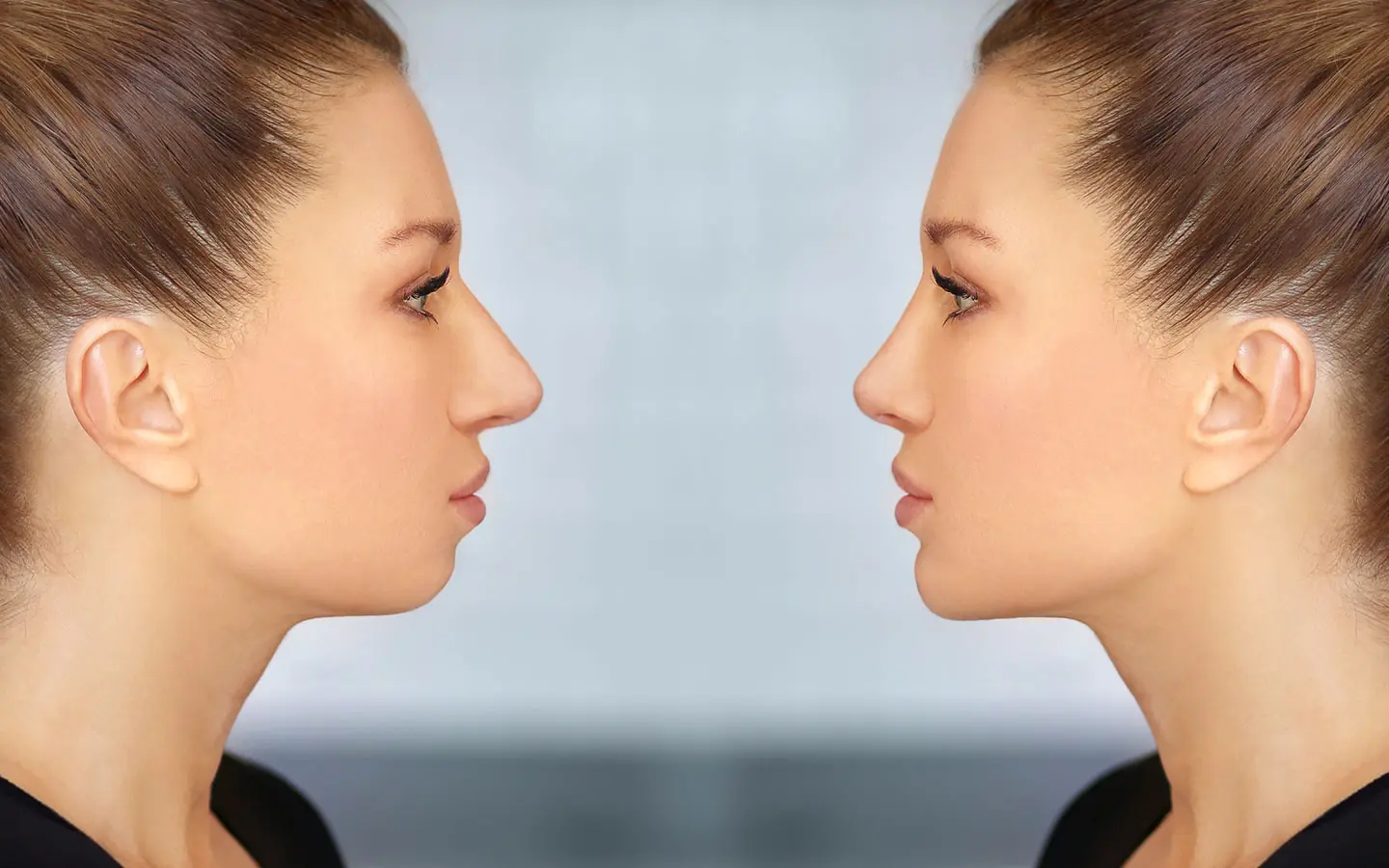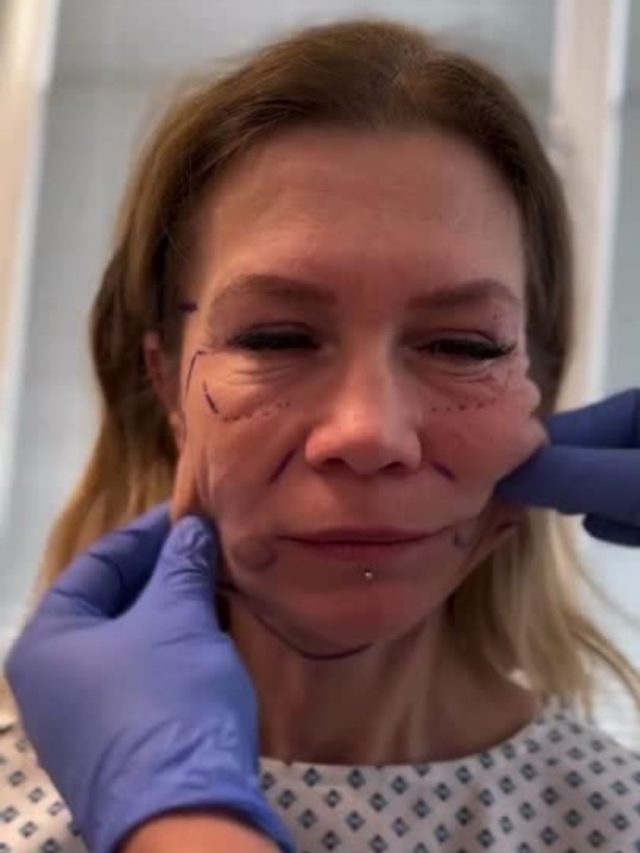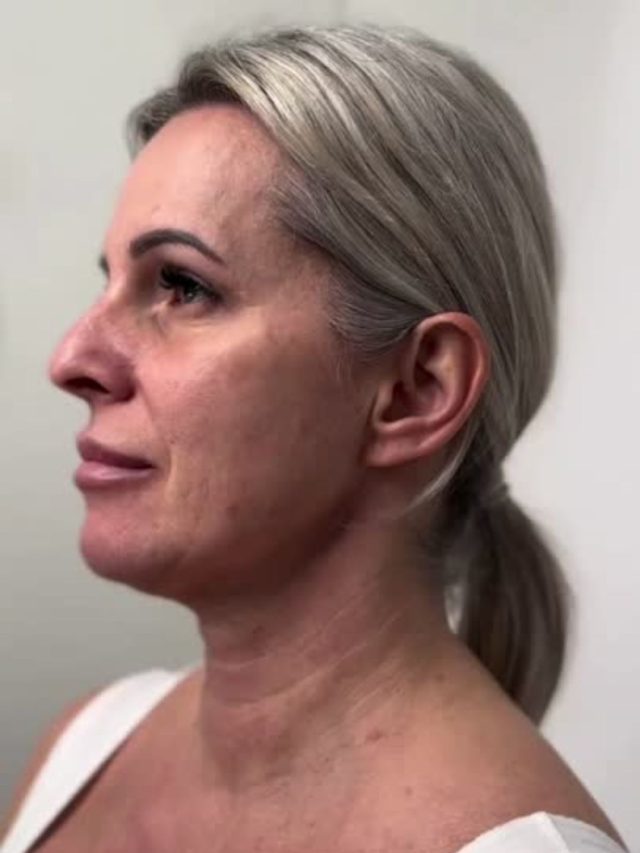Chin Surgery in Turkey
Chin surgery in Turkey offers an excellent opportunity to enhance your facial aesthetics at a cost-effective price without compromising on quality. With thorough research and careful planning, you can achieve the desired results and enjoy a refreshed, balanced appearance.
Chin Surgery in Turkey: A Comprehensive Guide
Chin surgery, or genioplasty, is a cosmetic procedure designed to enhance the appearance of the chin and lower face. Whether you’re looking to correct a receding chin, achieve better facial balance, or enhance your profile, Turkey has become a renowned destination for this surgery. Here’s what you need to know about chin surgery in Turkey.

Chin Surgery in Turkey: Understanding the Costs and Benefits
Chin surgery, or genioplasty, is a popular cosmetic procedure designed to enhance the appearance of the chin and improve facial harmony. If you’re considering this surgery, Turkey has become a prominent destination due to its combination of skilled surgeons, modern facilities, and competitive pricing.
Cost of Chin Surgery in Turkey
In Turkey, the cost of chin surgery typically ranges from $2,500 to $5,000 USD. This is notably lower than in many Western countries, where the procedure can cost between $6,000 and $10,000 USD. The lower cost in Turkey does not imply a compromise in quality, as many Turkish clinics offer high standards of care and advanced techniques.
Why Choose Turkey for Chin Surgery?
Cost-Effectiveness
Turkey offers a highly competitive pricing structure for chin surgery. With costs considerably lower than in many Western countries, you can achieve your desired results without exceeding your budget.
High-Quality Medical Care
Despite the lower cost, Pixl Clinic adhere to high standards of medical care. Many are internationally accredited and follow stringent safety protocols. Surgeons often have extensive experience in cosmetic procedures, including chin surgery.
Comprehensive Packages
Pixl Clinic provide all-inclusive packages for international patients. These packages often include:
- Surgery Costs: All fees related to the procedure.
- Accommodation: Stays in comfortable hotels or clinics.
- Transportation: Transfers between the airport, hotel, and clinic.
- Post-Operative Care: Follow-up visits and support during recovery.
Skilled Surgeons
Turkey is home to numerous skilled plastic surgeons who specialize in chin surgery. Reviewing surgeon credentials, patient testimonials, and before-and-after photos can help ensure you receive high-quality care.
Chin Surgery Cost: Turkey vs. Other Popular Destinations
If you’re considering chin surgery (genioplasty) to enhance your facial profile, cost is likely a significant factor in your decision-making process. Turkey has emerged as a popular destination for cosmetic procedures due to its combination of high-quality care and cost-effectiveness. But how does the cost of chin surgery in Turkey compare to other popular destinations?
Cost Comparison with Other Popular Destinations
United States
- Average Cost: $6,000 to $10,000 USD
- Factors: Prices in the U.S. are higher due to factors such as high surgeon fees, advanced technology, and overhead costs for clinics. Additionally, insurance coverage is often limited for cosmetic procedures, so patients may need to pay out-of-pocket.
United Kingdom
- Average Cost: $5,500 to $9,000 USD
- Factors: Similar to the U.S., the UK has higher costs due to the high cost of healthcare services and overhead expenses. The NHS does not typically cover cosmetic procedures, which means patients pay the full amount themselves.
Germany
- Average Cost: $4,500 to $8,000 USD
- Factors: Germany offers high standards of medical care and advanced techniques. However, costs remain higher due to the country’s high living standards and healthcare regulations.
South Korea
- Average Cost: $4,000 to $7,000 USD
- Factors: South Korea is renowned for its advanced cosmetic surgery techniques and high standards. Prices are competitive, but the cost can still be significant due to the high demand for cosmetic procedures and advanced technology.
Brazil
- Average Cost: $3,000 to $6,000 USD
- Factors: Brazil is known for its cosmetic surgery industry, and prices are generally lower than in Western countries. The cost is influenced by the clinic’s location and the surgeon’s experience.
Chin surgery in Turkey offers an excellent balance of cost and quality, making it a compelling choice for many seeking to enhance their facial profile. With prices significantly lower than in many Western countries, combined with high standards of care and comprehensive packages, Turkey stands out as a cost-effective and attractive option for cosmetic procedures.
Enhance Your Profile: Everything You Need to Know About Chin Surgery
If you’ve ever felt that your chin detracts from your facial balance or have longed for a more defined jawline, chin surgery (genioplasty) might be the solution you’re seeking. This cosmetic procedure can significantly enhance your profile and overall facial harmony.
What is Chin Surgery?
Chin surgery, or genioplasty, is a cosmetic procedure aimed at improving the appearance of the chin and lower face. This surgery can be performed to:
- Enhance Chin Projection: Using implants or bone repositioning to bring the chin forward for a more balanced profile.
- Reduce Chin Size: Reshaping the chin bone to reduce an overly prominent chin.
- Improve Facial Harmony: Adjusting the chin to better align with the rest of the facial features for a more proportional and attractive appearance.
Types of Chin Surgery
Chin Augmentation: This procedure involves increasing the size or projection of the chin. It can be done using:
- Implants: Silicone or other materials are used to enhance chin projection.
- Bone Repositioning: The chin bone is moved forward and secured in its new position.
Chin Reduction: This procedure involves reducing the size of the chin through reshaping the bone. It is suitable for individuals with an overly prominent chin that affects their facial balance.
Benefits of Chin Surgery
Enhanced Facial Aesthetics: Chin surgery can improve facial symmetry and balance by altering the chin’s size and shape. This can result in a more harmonious and attractive facial profile.
Boosted Confidence: Many patients find that correcting chin issues boosts their self-esteem and confidence, leading to a more positive self-image.
Long-Lasting Results: The results of chin surgery are usually long-lasting, providing enduring enhancements to your facial profile and overall appearance.
Customized Solutions: Chin surgery can be tailored to address specific concerns and achieve desired outcomes, whether through augmentation or reduction.
What to Expect During the Procedure
Consultation: Your journey begins with a thorough consultation with a board-certified plastic surgeon. During this meeting, you’ll discuss your goals, medical history, and the specifics of the procedure.
Anesthesia: Chin surgery is typically performed under general anesthesia or local anesthesia with sedation, depending on the complexity of the surgery and your preferences.
Surgical Process: The surgeon will make incisions either inside the mouth or under the chin, depending on the technique used. For augmentation, implants may be placed, or the chin bone may be repositioned. For reduction, the bone is reshaped and adjusted.
Duration: The procedure usually lasts between 1 to 2 hours.
Recovery and Aftercare
Initial Recovery: Post-operative swelling, bruising, and discomfort are common. Cold compresses and prescribed pain medications can help manage these symptoms.
Return to Activities: Most patients can resume normal activities within 1 to 2 weeks. It’s essential to avoid strenuous activities and heavy lifting during the initial recovery period.
Follow-Up Care: Regular follow-up appointments are necessary to monitor healing and ensure the best results. Your surgeon will provide detailed instructions on how to care for your incisions and manage recovery.
Frequently Asked Questions
What is chin surgery (genioplasty)?
Chin surgery, or genioplasty, is a cosmetic procedure aimed at reshaping the chin. It can involve chin augmentation (inserting implants) or reduction (removing bone) to improve facial harmony.
Why is chin surgery popular in Turkey?
Turkey has become a hub for medical tourism due to its experienced surgeons, modern facilities, and significantly lower costs compared to countries like the US or the UK. High-quality care at competitive prices attracts patients worldwide.
What types of chin surgery are offered in Turkey?
- Chin Augmentation: Involves using implants or fillers to enhance the chin’s size and shape.
- Chin Reduction: Surgery to reduce the size of a prominent chin.
- Sliding Genioplasty: A bone manipulation procedure where the chin bone is moved to achieve a desired shape.
How much does chin surgery cost in Turkey?
The cost varies depending on the type of surgery, clinic, and surgeon, but generally, it ranges from $2,000 to $5,000, including consultations, surgery, and post-operative care.
How long does the recovery take?
The recovery period usually takes 1 to 2 weeks. Most swelling subsides within a week, but final results may be visible after several months.
Are the surgeons in Turkey qualified?
Most cosmetic surgeons in Turkey are board-certified, experienced, and trained both locally and internationally. Many clinics cater specifically to international patients.
Do clinics in Turkey offer packages for international patients?
Yes, many clinics offer all-inclusive packages covering consultation, surgery, accommodation, airport transfers, and post-operative care.
Is chin surgery in Turkey safe?
With proper research, chin surgery in Turkey is generally safe. It’s essential to choose a reputable clinic and board-certified surgeon with experience in facial surgeries.
What are the risks associated with chin surgery?
As with any surgery, there are risks such as infection, bleeding, nerve damage, and unsatisfactory results. It’s important to discuss these with your surgeon.
How do I choose a clinic in Turkey?
- Research thoroughly: Look at the clinic’s reputation, surgeon credentials, and patient reviews.
- Consultation: Opt for an online consultation to discuss your expectations and understand the procedure.
- Check Certifications: Ensure the clinic is accredited and follows international medical standards.
Will I need a visa to travel to Turkey for surgery?
Most nationalities can get an e-Visa for Turkey, which is usually a straightforward process. Always check the latest travel requirements.
How long should I stay in Turkey for chin surgery?
Patients typically stay for about 7 to 10 days, which includes pre-op consultation, surgery, and the initial recovery period for follow-up care.
If you’re considering chin surgery in Turkey, it’s crucial to do proper research, consult with professionals, and prepare adequately for both the procedure and aftercare.










